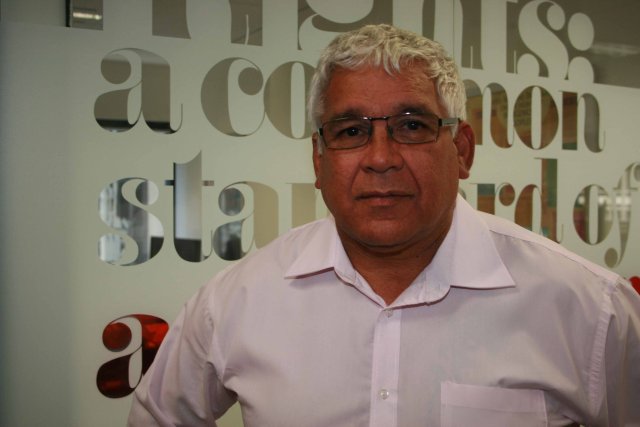
Big business and mining giants are the acknowledged big winners of the recent federal budget, and it is Aboriginal people who will be the hardest hit.
The transformation of the Australian health and education systems as well as the cuts to welfare proposed by the federal budget will have particularly bad effects on Aboriginal people: whether living in remote communities, in cities or regional centres.
The $534.4 million in cuts to Aboriginal programs over five years and a cut of $165 million to Aboriginal health make Aboriginal people are the on the receiving end of the worst of this budget.
A range of Aboriginal organisations have expressed outrage at the impact of the budget and have called for accountability and detail on the effects.
Mick Gooda, Aboriginal and Torres Strait Islander social justice commissioner at the Australian Human Rights Commission told the ABC on May 20: “Like many other sections of the community, Aboriginal and Torres Strait Islanders are concerned by the proposed withdrawal of Commonwealth investment in education and hospitals. I am concerned Australia is heading towards two-tier education and health sectors which divide the haves from the have-nots.
“However, it is the changes to the welfare system, particularly youth welfare, which could have a devastating impact on Aboriginal and Torres Strait Islander communities.
“The proposal to deny young people access to the dole for six months of the year is cruel. It won't address what is a very complex issue in youth unemployment. All it will do is further marginalise an already marginalised sector of the community.
“Experts and welfare groups have argued, correctly, I fear, that the changes to the youth welfare system could lead to a spike in the crime rate. Young Aboriginal and Torres Strait Islander people are already 28 times more likely to be in youth detention than other Australians. And when the cuts to Aboriginal Legal Services are added to this mix, the multiplier effect means this crisis risks becoming a catastrophe.”
“Aboriginal and Torres Strait Islander people access Medicare services at a rate which is almost one third lower than what is required on a needs basis. Our people need encouragement to access medical services, not more barriers. Increasing out-of-pocket expenses for health care will further entrench barriers to equitable healthcare ...
“The budget savings to be achieved through program rationalisation have not been, as promised, maintained in Indigenous Affairs or Closing the Gap. Instead, the health savings are to be invested in the Medical Research Future Fund and other savings will be going to the budget bottom line. This reversal of a pre-election promise should be addressed, particularly in light of the Prime Minister's stated commitment to be the Prime Minister for Indigenous Affairs.”
As well as the impact on youth from changes to welfare payments, raising the eligibility for the age pension to 70 discriminates against Aboriginal people.
The National Congress of Australia’s First Peoples co-chair Kirstie Parker said on May 13: “The pension age is to be lifted to 70 years but we’re unaware of any consideration being given to the fact that the average life expectancy of our men is 69 years and for our women 73 years.
“That’s roughly ten years less than the general Australian population – our people will be lucky to make it to retirement age, let alone collect superannuation.”
About $534.5 million will be saved by axing 150 Indigenous programs and replacing them with five programs. This is under the guise of streamlining and efficiency. There are no details in the budget papers on how Aboriginal organisations can access these new programs or to maintain long-standing community controlled programs, which have proved to be effective.
Amy McQuire said in the Guardian on May 16: “I saw nothing to slow the torrents of Aboriginal hurt across the country. Instead I saw this: more than $54 million pumped into boosting police infrastructure in remote communities. No funding re-directed into keeping blackfellas out of jail, but more for those who will keep locking them up.
“Put simply, you don’t make communities safer by locking up their men, in many cases for the “victimless crime” of driving unregistered or unlicensed. You make them safer by investing in adequate health, housing, employment and education opportunities – measures which aren’t explained in these budget papers.”
Indigenous leaders are calling on the federal government to reconsider the decisions made and are calling for clarification during the Senate estimates process.
Gooda said: “The impact the budget will have on Indigenous services, organisations and outcomes is unclear, and these proposals have been developed with little or no input from Aboriginal and Torres Strait Islander people and their representative organisations.
“I have said several times this year that there is a new maturity in the Aboriginal and Torres Strait leadership, one where we recognise there are major problems with Australia's economy, one where we recognise that every sector must contribute, including ours.”
“The federal government has outlined its intention for a new engagement with Aboriginal and Torres Strait Islander people. To achieve this goal, surely it must at least have a discussion with us before proceeding with a radical re-shaping of government policy that so profoundly affects us?
“The Aboriginal and Torres Strait Islander leadership stands ready for this conversation with Government. All it takes is an assurance that we will be heard.”